Photographs: Arko Datta/Reuters Devangshu Datta
One possibility is to completely ignore the political situation and keep systematically investing in whatever he fancies, says Devangshu Datta.
The current market rally is one of those situations that makes a long-term investor distinctly nervous.
The rally is obviously driven by hopes of the National Democratic Alliance (NDA) winning enough of a mandate to run a stable government that reboots a moribund economy.
If that does happen, the market could continue to zoom and if it doesn't happen, there could be a big crash.
This is fine for a trader prepared to reverse positions and run for cover or short as required. It is not an attractive situation for a long-term investor.
...
Elections: How to protect your portfolio from a market crash
Photographs: Reuters
Sure, he might see a rapid capital appreciation if the hoped-for-outcome comes through. But he could also see rapid capital losses. And, the market's average valuations are starting to run up to uncomfortable levels.
What does the long-term investor do? One possibility is to completely ignore the political situation and keep systematically investing in whatever he fancies.
This requires heroic self-control and patience and could be a strategy that results in opportunity costs, whatever happens.
...
Elections: How to protect your portfolio from a market crash
Photographs: Reuters
For example, a long-term investor could have a systematic investment plan (SIP) wherein he invests equal monthly amounts in an index fund or exchange traded fund (ETF).
He duly makes his investments in April and May, ignoring the political situation.
The NDA comes to power and the market heads into orbit in late May. Our man has passed up the opportunity to make a great deal more money but at least he is well into the black.
Alternatively, the NDA doesn't come to power and the market crashes. The SIP loses some money - maybe quite a lot.
...
Elections: How to protect your portfolio from a market crash
Photographs: Reuters
The long-term investor can argue with a little justice that these volatile periods tend to even out over the years.
However, we are talking about a situation where the market has gained 14 per cent in just over a month; it might gain another 10-15 per cent in the next five to six weeks; and it could also lose 10-15 per cent within the next five to six weeks.
The CAGR of the market over the past decade is just under 14 per cent. This level of volatility is significant even for a long-term investor.
I think this is actually one of those situations where the long-term investor has to take a view and bet on it. Several views are possible. The investor might believe the NDA is coming to power and decide to increase the size of his commitments in April and May.
...
Elections: How to protect your portfolio from a market crash
Photographs: Uttam Ghosh/Rediff.com
He might decide the NDA is not coming to power and cut his commitments. He might decide to fence-sit and wait until May 16, when the results are declared. At that point, he might decide to bet heavily on the likely market reaction to the outcome.
It is also one of those rare situations where even a very long-term investor could contemplate using derivative instruments to protect his investments. The possibility of a big crash in May-June could be hedged by deep puts in the Nifty, say, at strikes like 5,500p or 6,000p.
If the crash doesn't happen and the market continues to run up, the investor will have paid a premium of around one to two per cent of his portfolio value.
If the crash does occur, the puts will see premiums multiply and considerably reduce losses.
The author is a technical and equity analyst.

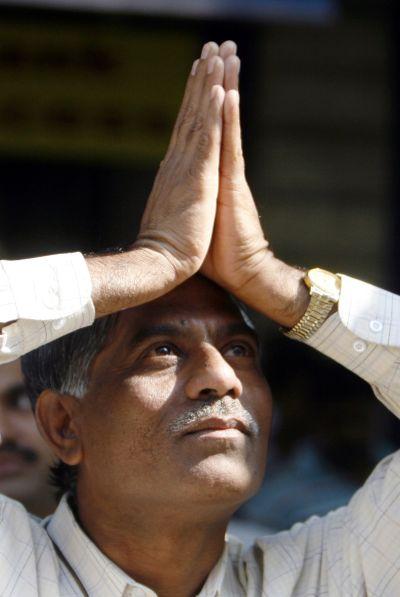
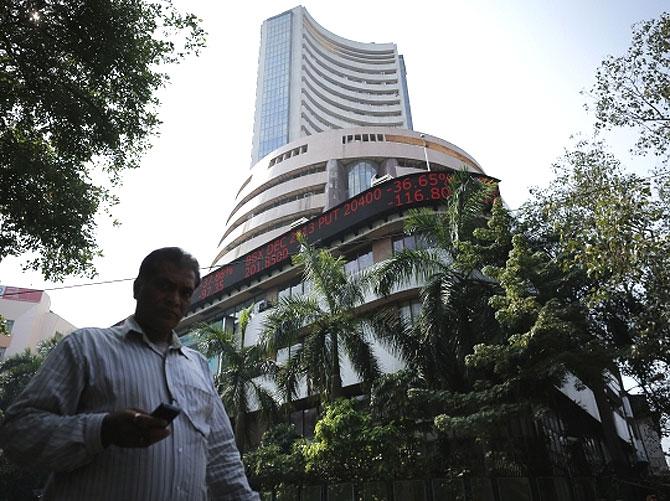
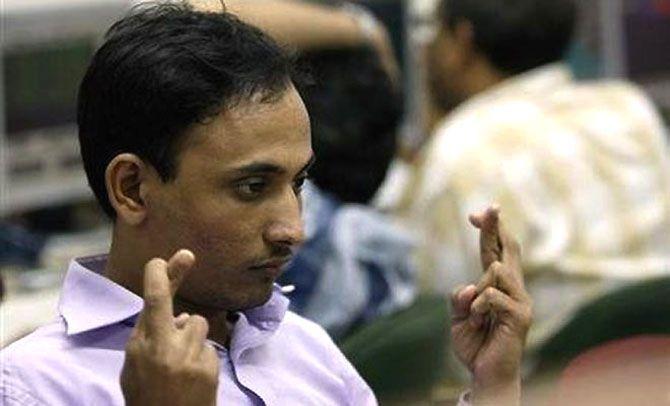
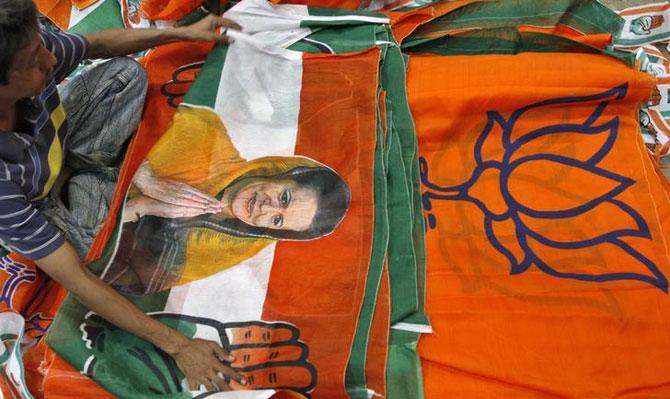
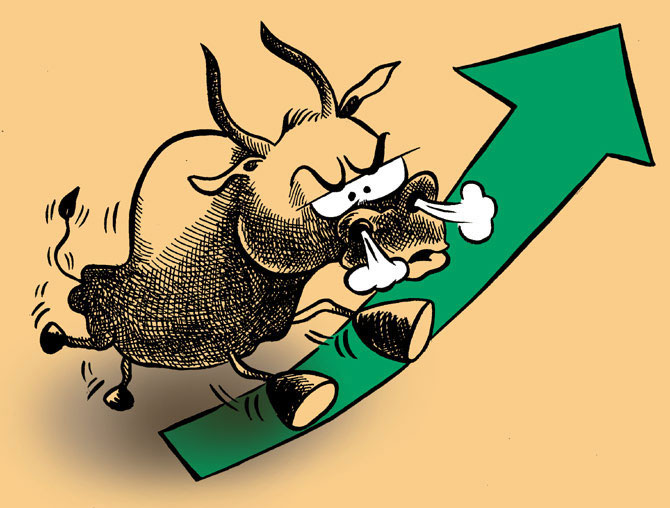

article